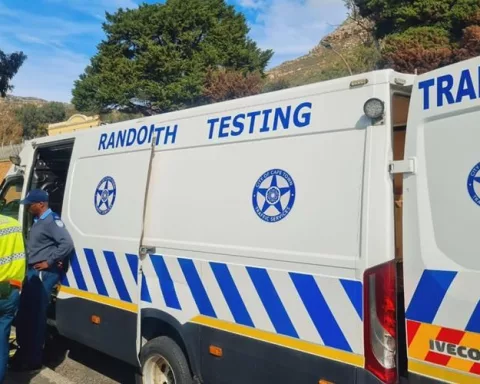The N2 freeway and R300 routes in Cape Town have become notorious for high rates of criminal activity, including stone-throwing attacks on drivers. Dubbed the ‘Hell Run’, this dangerous stretch of road has recorded over 200 crime incidents in the past year. The joint effort between SANRAL, local authorities, and law enforcement agencies aims to evaluate and pinpoint critical sections concerning crime and safety, emphasizing the crucial partnership between road administration and law enforcement to safeguard motorist welfare. These incidents underscore the pressing need for continuous vigilance and creative problem-solving.
What is the ‘Hell Run’ on Cape Town’s N2?
The ‘Hell Run’ is a dangerous stretch of the N2 freeway and R300 routes in Cape Town, known for high rates of criminal activities, including stone-throwing attacks on drivers. Over the past year, the area has recorded over 200 crime incidents, emphasizing the crucial partnership between road administration and law enforcement to safeguard motorist welfare. The joint initiative between SANRAL, the City of Cape Town, the Western Cape Government, city law enforcement, and the South African Police Service aims to evaluate and pinpoint critical sections concerning crime and safety.
A Troublesome Highway: N2’s Criminal Infamy
Set within the bustling cityscape of Cape Town, South Africa, an infamous stretch of road has become a symbol of trepidation. Known particularly for a high rate of criminal activities, the N2 freeway and the R300 routes have recorded over 200 crime incidents in the past year, as per the South African National Road Agency’s (SANRAL) tracking system. This dangerous section, fittingly coined the ‘Hell Run’, is riddled with stone-throwing attacks on drivers, highlighting the crucial partnership between road administration and law enforcement to safeguard motorist welfare.
The ‘Hell Run’ isn’t merely confined to a particular locale; it extends to the course connecting Cape Town International Airport, causing disquiet among residents and travelers. The relentless issue has urged the rigorous evaluation of SANRAL’s Freeway Management System (FMS). Emphasizing the joint nature of the initiative, Randall Cable, SANRAL’s Western Region Manager, spoke about the participation of the City of Cape Town, the Western Cape Government, city law enforcement, and the South African Police Service (SAPS).
Despite not being a law enforcement body, SANRAL plays a key role in orchestrating the road infrastructure and the engineering dimensions of the N2. The FMS, a collaborative endeavor with the City of Cape Town and the Western Cape Government, amasses freeway data to scrutinize and pinpoint critical sections concerning crime and safety.
Unsettling Incidents: The Dark Side of the N2
The FMS illuminates the daunting issue of crime incidents on the N2. Most events revolve around robbery, with stationary vehicles being primary targets, and a surge of smash and grabs at crossroads. Over the recent months, alarming instances of stone-throwing have made news, including one involving a tourist from Connecticut.
A bone-chilling episode recounts a man from Los Angeles, who was led through Nyanga to Simon’s Town by his GPS, only to be shot, robbed, and left with a lasting memory of Cape Town’s criminal underworld. In another instance, a couple from Los Angeles had a brick thrown at their car window before four men held them at gunpoint and robbed them.
The most heartbreaking incident involved the death of Leonie van der Westhuizen, a 69-year-old woman who suffered a fatal heart attack after a rock smashed her car window. These tragic events, grim reminders of the city’s battle with crime, have instigated discussions among Cape Town Mayor Geordin Hill-Lewis, Cape Town Tourism, and Google Maps representatives to consider safer route options to and from the airport.
Collective Efforts: Fighting Crime on the N2
As per Ruth Solomons, a spokesperson for the City metro police department, the unpredictable nature of stone-throwing incidents makes them hard to anticipate and avert. This is why the city’s Public Emergency Communication Centre and Emergency Policing and Incident Command mostly respond to service requests and assistance calls related to these incidents.
However, the primary authority for crime prevention, the South African Police Service (SAPS), receives most of these incident reports, underlining the necessity for interdepartmental coordination to deal with this complex issue.
While SANRAL and local authorities persist in their efforts to guarantee safety on the N2, these incidents underscore the pressing need for continuous vigilance and creative problem-solving. The partnership among road authorities, law enforcement agencies, and tech companies provides a model for tackling similar issues, not only in Cape Town but globally.
How many crime incidents have been recorded on the N2 freeway and R300 routes in Cape Town in the past year?
Over the past year, the N2 freeway and R300 routes in Cape Town have recorded over 200 crime incidents, including stone-throwing attacks on drivers.
What is the joint initiative between SANRAL, local authorities, and law enforcement agencies aiming to achieve?
The joint initiative between SANRAL, the City of Cape Town, the Western Cape Government, city law enforcement, and the South African Police Service aims to evaluate and pinpoint critical sections concerning crime and safety on the N2 and R300 routes in Cape Town. It emphasizes the crucial partnership between road administration and law enforcement to safeguard motorist welfare.
What kind of criminal activities are common on the N2 freeway and R300 routes in Cape Town?
Most crime incidents on the N2 freeway and R300 routes in Cape Town revolve around robbery, with stationary vehicles being primary targets, and a surge of smash and grabs at crossroads. Stone-throwing attacks on drivers have also become common.
What is SANRAL’s role in dealing with crime incidents on the N2?
Despite not being a law enforcement body, SANRAL plays a key role in orchestrating the road infrastructure and the engineering dimensions of the N2. The Freeway Management System (FMS), a collaborative endeavor with the City of Cape Town and the Western Cape Government, amasses freeway data to scrutinize and pinpoint critical sections concerning crime and safety.
What is being done to address stone-throwing incidents on the N2?
According to Ruth Solomons, a spokesperson for the City metro police department, the unpredictable nature of stone-throwing incidents makes them hard to anticipate and avert. The city’s Public Emergency Communication Centre and Emergency Policing and Incident Command mostly respond to service requests and assistance calls related to these incidents. However, the primary authority for crime prevention, the South African Police Service (SAPS), receives most of these incident reports, underlining the necessity for interdepartmental coordination to deal with this complex issue.
What is the partnership among road authorities, law enforcement agencies, and tech companies aiming to achieve?
The partnership among road authorities, law enforcement agencies, and tech companies provides a model for tackling similar issues, not only in Cape Town but globally. It emphasizes the need for continuous vigilance and creative problem-solving in dealing with complex issues such as crime incidents on highways.












